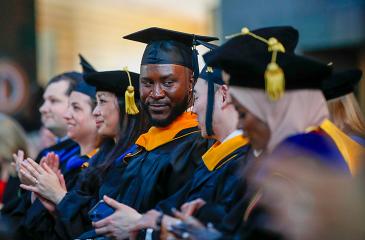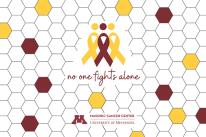As another academic year comes to an end, I want to extend my gratitude for all that you do to prepare and train Minnesota's newest health care professionals. This work is especially important as the state faces a growing shortage of health professionals—particularly in Minnesota’s small towns and rural communities.
Fortunately, our University is uniquely positioned to meet these workforce challenges by bringing together the strengths of all of our health sciences schools and programs. In fact, this month we’ll celebrate the graduation of nearly 1,400 new health professionals who will advance from our campuses and begin to shape the future of health care.
Developing and strengthening Minnesota’s health care workforce is just one way we are fulfilling our mission to the state and to all the communities we serve.
Together, we can bring about the kind of innovation and discovery that will lead us into a healthier future and, more importantly, ensure all Minnesotans have access to care.
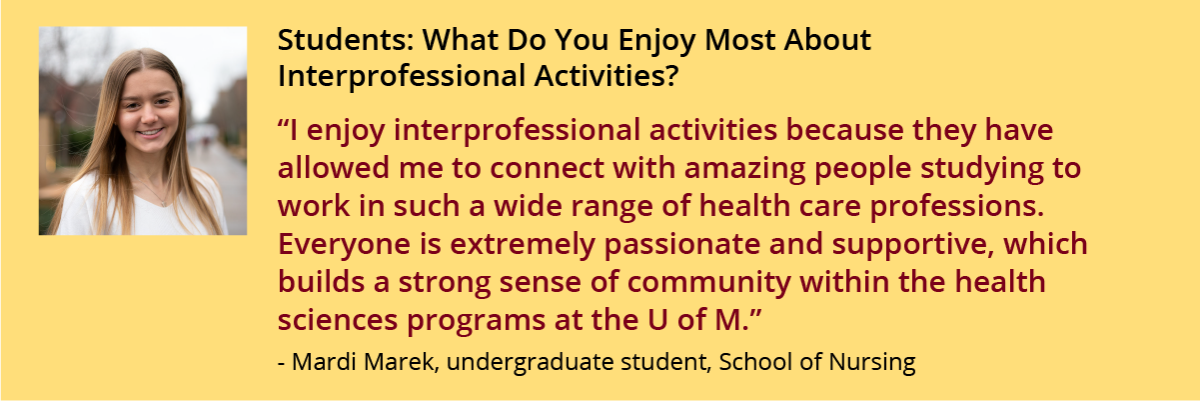
Driving Innovation & Discovery

Minnesota Partnership for Biotechnology and Medical Genomics Awards Three Collaborative Research Grants for 2023
The U of M and Mayo Clinic recently announced three collaborative research grants totaling $5.82 million through the Minnesota Partnership for Biotechnology and Medical Genomics. The initiative provides funding and support for the development of interventions, programs, and treatment approaches across the entire spectrum of biomedical and health care research with the ultimate goal of improving health outcomes for Minnesotans. This year’s award recipients are:
Theoden Netoff, PhD, UMN; Gregory Worrell, MD, PhD, Mayo Clinic; Alex Opitz, PhD, UMN; Paul Croarkin, DO, MS, Mayo Clinic
Minnesota Precision Neuromodulation Center (MinPeNCe)
Genevieve Melton-Meaux, MD, PhD, UMN; Pedro Caraballo, MD, Mayo Clinic; Gyorgy Simon, PhD, UMN; Hongfang Liu, PhD, Mayo Clinic
ENTRUST AI: ENsuring the TRUSTworthiness of AI/ML Models to Optimize Continual Patient Safety
Bruce Blazar, MD, UMN; Saad Kenderian, MD, ChB, Mayo Clinic
Targeting CD103 with Engineered Cell Therapy for the Treatment of GVHD
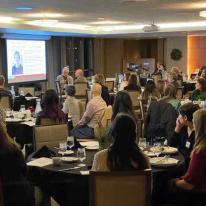
Three Research Teams Receive Child Health Collaborative Grants
Researchers from the U of M and Children’s Minnesota, along with collaborators from Hennepin Healthcare, state and county agencies, and Centro Tyrone Guzman, the oldest and largest Minneapolis-based multi-service Latine organization, were awarded grants to study a wide range of health issues affecting Minnesota children and adolescents.
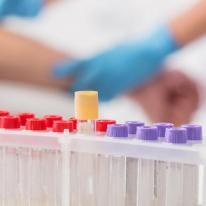
May 20 is Clinical Trials Day
This Clinical Trials Day, we celebrate everyone who makes life-saving research possible. One example is the Minnesota Cancer Clinical Trials Network, which makes a difference in clinical research by increasing access to trials in prevention and treatment statewide. Thank you for all that you do! Let this day be a reminder for all of us to continue talking to patients about research, so medical breakthroughs can keep improving people’s lives. Patients can find studies that need participants by visiting studyfinder.umn.edu, joining the ResearchMatch registry, or talking to their providers.
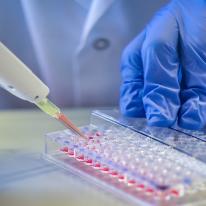
High Throughput Screening Services for University Researchers
Led by Courtney Aldrich, PhD, the Institute for Therapeutics Discovery and Development's High-Throughput Screening (HTS) core supports the U of M research community and offers a wide range of services and state-of-the-art automated screening systems. To help investigators generate preliminary data for future grant proposals, the HTS lab supports researchers from assay design through execution of biochemical or cell-based screens. The HTS lab has a 350,000 compound collection available for screening.
Advancing Interprofessional Education & Training

Building Collaborative Practice and Precepting Skills
Following a successful first-year pilot, the Center for Interprofessional Health is preparing to launch a second year of innovative continuing education through its Workplace Interprofessional Learning & Development (WILD) series. Four series will be offered under the WILD umbrella, each focused on one of the Interprofessional Education Collaborative competency areas: Communication, Roles & Responsibilities, Teams & Teamwork, and Values & Ethics. The registration deadline for the upcoming Wild Series on Communication is Thursday, June 1.
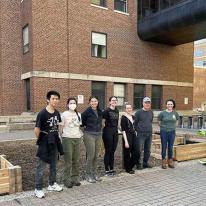
Planting With Purpose
The Health Sciences Education Center Interprofessional Student Garden offers students a space for respite, wellness, and organic relationships across disciplines. Located outside between the Mayo and Phillips Wangensteen buildings, the garden offers students an opportunity to work together and socialize. “Being in nature, watching things grow once planted, and contributing to something meaningful helps reduce stress and build our student community,” said Brooke Offenhauser, co-president of the Interprofessional Student Garden Advisory Board.
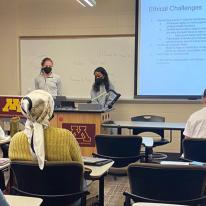
Global Health Ethics
This on-campus course uses a seminar-based model and explores various ethical frameworks, including development ethics, public health ethics, religion and ethics, and biomedical ethics. Fall registration is open.
Partnering with Communities
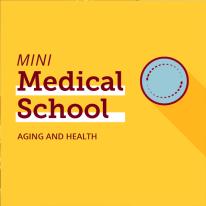
Watch Now: Mini Medical School
The recordings of Mini Medical School: Aging and Health are now available for you to view at your convenience. The three-session series covered a local-to-global look at aging, creating pathways to healthy aging, and thriving: mental health and wellbeing. Thank you for joining us for the virtual spring series!
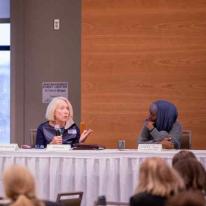
The Drive to Thrive: How a CTSI Fellow is Helping Rural Seniors Flourish in Longevity
Three times a week, a group of seniors meet for an hour inside a church gym on the Iron Range, the narrow strips of land that trace ore deposits along Lake Superior, which is the home base for Ann Bussey, one of the inaugural fellows of Project REACH (Rural Experts Advancing Community Health), and a retired health care leader who is changing how Minnesota leaders and rural communities think about senior citizens. The class acts as both an informal focus group and a muse for Bussey, who has already attracted attention from the state’s highest offices and convinced the library system to expand its services to help older patrons.
U-Wide Events and Opportunities
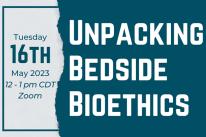
Standards for Surrogate Decision-Making
Join the Center for Bioethics on May 16 for this Unpacking Bedside Bioethics event.
May 18: Whole Person Approaches to Managing Pain with Brent Leininger, DC, MS, PhD
Join the Earl E. Bakken Center for Spirituality and Healing for a free webinar on a whole person approach to pain management.
June 1, 8 & 15: Food Matters for Health Professionals: Continuing Education Course
Use code 23FOOD610 for 10% off this virtual, interactive, three-part program.
